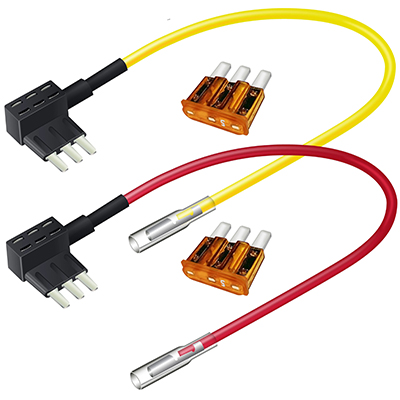Understanding Fuse Tap Applications in ABS Modules for Enhanced Automotive Braking System Efficiency and Safety
News 2025-10-20
Fuse taps play a vital role in automotive engineering, particularly in ABS modules and vehicle braking systems. These devices enable the addition of supplementary electrical circuits without compromising the integrity of the original wiring. In ABS systems, which prevent wheel lockup during braking, fuse taps ensure consistent power delivery to critical components like sensors and actuators. This reliability is key in high-stakes scenarios, such as emergency stops, where any electrical failure could lead to loss of control. By facilitating seamless integration, fuse taps support advancements in vehicle safety technologies, making them indispensable in modern automotive design.

Application Scenarios
Fuse taps are widely used in diverse settings within vehicle braking systems. For example, in commercial fleets, they connect diagnostic tools to ABS modules for real-time monitoring of braking performance, aiding in predictive maintenance. In racing applications, fuse taps link custom electronics that fine-tune ABS response for better handling on tracks. Additionally, in emerging electric vehicles, they integrate with regenerative braking setups, allowing efficient energy recapture during deceleration. This versatility extends to aftermarket modifications, where enthusiasts add features like advanced traction control without altering factory wiring.
Performance Advantages
One major benefit of fuse taps is their ability to maintain low electrical resistance, which minimizes energy loss and heat buildup in ABS circuits. This ensures precise operation of braking components, enhancing overall system responsiveness. Fuse taps also offer robust protection against short circuits, safeguarding sensitive ABS modules from damage. Their design supports high current capacities, making them ideal for demanding conditions like heavy-duty towing or off-road use. Furthermore, the ease of installation reduces labor costs and potential errors, contributing to longer system lifespan and improved vehicle reliability in various driving environments.
1. What is a fuse tap and its primary use?
Answer: A fuse tap is an adapter that adds extra circuits to a fuse box, commonly used in ABS systems to connect additional devices without rewiring.
2. How do fuse taps enhance braking performance?
Answer: They provide stable power to ABS components, reducing the risk of malfunctions and improving response times during braking.
3. Can fuse taps be used in non-braking systems?
Answer: Yes, they are versatile and can apply to other automotive systems like lighting or infotainment, as long as compatibility is ensured.


